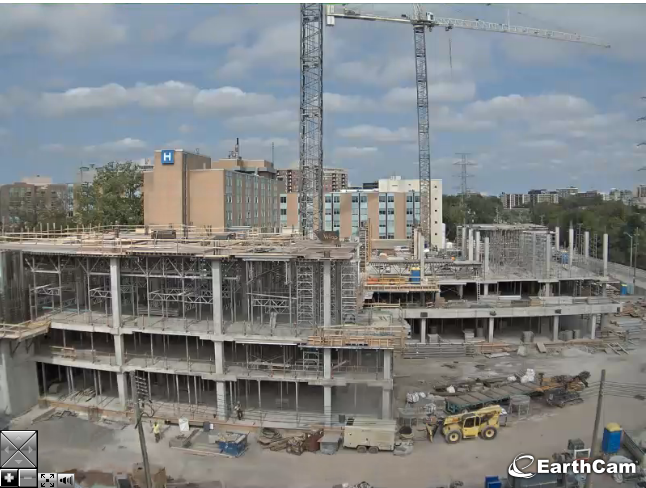 By Staff
By Staff
April 23rd, 2023
BURLINGTON, ON
There is an organization that caters to the development industry. They material they publish is about building.
We follow what they do; in the past we have found several views that we feel are worth passing along.
They recently put his information out:
Typically, construction isn’t associated with organic ecosystems or the preservation of nature. But change is on the horizon.

The addition to the Joseph Brant Hospital under construction.
The City of Toronto’s TransformTO Net Zero Strategy sees the city bringing its emissions to net zero by 2040. But even sooner than that, a mandated shift under the strategy requires the construction of all new buildings with near-zero greenhouse gas emissions by 2030 – that’s a short seven years, in the world of construction.
The mandate is backed by receipts; recent data released about the Greater Toronto Hamilton Area (GTHA) showed buildings are responsible for more emissions than any other industry – including transportation and agriculture – at 44% of the area’s total.
In the development realm, emissions come from many angles: the materials used throughout construction, the building process itself, and the continued operation of buildings after completion. With so many elements at play, there’s no one way forward – rather, a series of industry-wide fixes will be required to bring forth long-term change.
Interesting – how would that be applied to the work being done by Burlington’s Planning department.
The words: “…strategy requires the construction of all new buildings with near-zero greenhouse gas emissions by 2030 …” beg the question – is this being applied in Burlington?
The data comes from Storey – you can find them HERE.

















